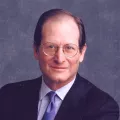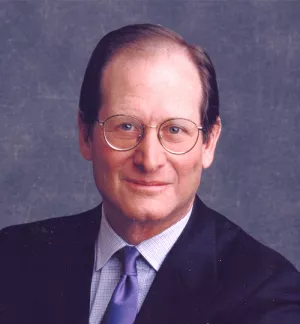The potent libido of many people inebriated with power is doubtless unchanged over the centuries. No news there. What has changed, and often with good reason, is the shrinking zone of privacy accorded the powerful by a changing media---and the career-ending consequences of public-figure conduct outside that zone.
In deciding whether to publish or broadcast personal failings, the "mainstream media" historically applied the editorial test of whether those failings "affected the person's public responsibilities." For many years, the media cut public officials plenty of slack. The media silence accorded the infidelities of FDR and JFK are frequently cited as Exhibits A and B of different eras.
Today, of course, the "media" has changed, with a vast array of hunters----from the New York Post to the National Enquirer, from TMZ to individual bloggers---seeking the devastating personal sin that will condemn a public official or public figure to the eighth circle of Hell.
So too, the standards of what personal details are now "relevant" to the conduct of public duties have been bent so far as to be almost non-existent. Affairs when married; affairs with people who work for you; public drunkenness; unwanted touchings; ill- chosen, offensive words; tampering with legal process to protect personal details from coming out; drug use present; drug use past; directing public work to former mistresses. Almost any personal failing is now seen as fair game by some denizen of the modern media world---because it is relevant to "character," which is relevant to public duties. Moreover, there is scant protection for private actions between "consenting adults," even if not married, because there is now a robust market for a new type of gold-digger who may be keeping tapes, emails, phone or text messages to sell to some scruffy, not starched, media outlet.
And, of course, "standards of proof" have been eroded as some in the non-mainstream media may have little hesitation in disseminating rumor or innuendo as "fact." And, at the other end of the spectrum, the upper echelon media, if it isn't their story, may ignore a blockbuster right in front of them. The National Enquirer, it is reported, may be up for a Pulitzer Prize on the John Edwards "love child" story. But, of equal interest, would be the in-depth account about what happened at the news desks of many major news organizations that ignored the story. The failure of the mainstream media in the Edwards story is only going to increase pressure everywhere to probe personal details.
Of course, personal failings do show character. Most of the behavior exposed of late raises fundamental questions of fitness to serve (Governors Sanford and Spitzer are prime examples). There can be intellectual discussions about how public officials ought to have a private life or whether and why the U.S. is different than Europe in its pre- occupation with the personal, but "media" incursions into personal lives proceeds apace.
This means that the "stake-outs" and "media riots" for a prominent figure about whom there is a widely disseminated rumor or report of some vague "probable cause" will also increase.
The lesson for public officials is clear. There is virtually no zone of privacy for questionable person acts. People in positions of influence proceed at their peril. Power may be the ultimate aphrodisiac, but there is now no place to hide.
Heineman, Ben. “No Private Zone.” On Leadership at washingtonpost.com, March 11, 2010


